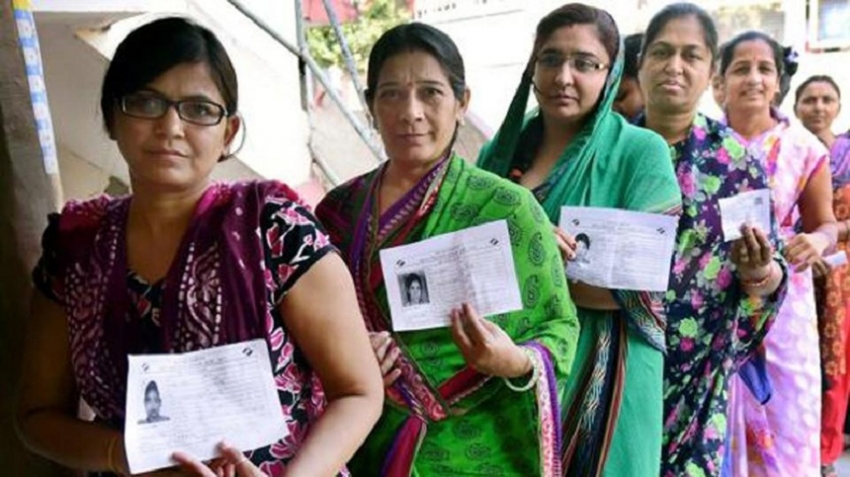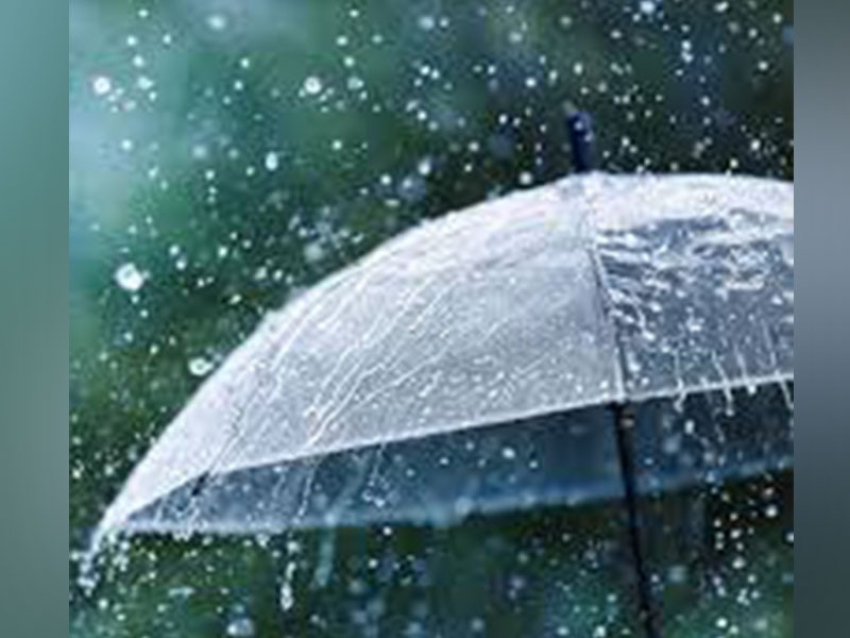While much of the world’s media attention remains largely drawn to the Notre-Dame disaster in Paris, France, two of the world’s and Asia’s largest democracies, India and Indonesia, made strides in their electoral processes this week.In India, on Tuesday this week, campaigning ended for the second phase of the 17th Lok Sabha election in 97 constituencies, spread over 12 States and a Union Territory. This phase involves all voting in 39 constituencies of Tamil Nadu, 14 in Karnataka, 10 in Maharashtra, eight in Uttar Pradesh, five each in Assam, Bihar and Odisha, 3 each in Chhattisgarh and West Bengal, two in Jammu and Kashmir and one each in Manipur, Tripura and Puducherry.
In what is the world’s biggest exercise in electoral democracy, the Indian electorate has over 900 million voters, compared to 830 million in 2014. The number of seats in the Lok Sabha – the Lower House of parliament – is 545, and the electoral winner needs to find a majority here from a single party or coalition. There are 1 million polling stations in the country.
The Election Commission of India’s latest data on political parties, registered till March 9, a day before the Lok Sabha elections were announced, shows the country having a total of 2,293 political parties. Of these, 149 political parties were registered between February and March on the eve of the announcement of the current elections. Counting of all votes cast since April 11 will take place after all seven phases of voting, on May 23.
In 2014, the BJP won 282 seats in the Lok Sabha, the largest majority commanded by a single party in 30 years. With its allies, the party easily passed the 300 mark, indicating the popularity of its leader Narendra Modi, who became Prime Minister, and seeks re-election in this poll.
Campaigning continues in all other regions with increasingly bitter political rivalry, mainly between the current ruling Bharatiya Janatha Party (BJP) and its Hindutva allies, and the Opposition Congress Party, with its own allies. While the BJP remains in the lead as seen by opinion polls and noticeable public support, the Congress and its allies are certainly gaining considerable ground in recent weeks. Another factor is the role of regional parties in several states in India, both supportive and opposed to the ruling BJP. Many analysts see this as a new trend in Indian polls, with the regional parties moving towards a greater say in national politics.
In a new move of increasing interest, The Election Commission has begun imposing Electoral Restrictions, preventing some leading party candidates from both Government and Opposition parties, participating in politic activity for some days in the current campaign, for allegedly violating the Model Code of Conduct (MCC) by political parties and candidates.
Such restrictions have imposed restrictions on campaigning by Uttar Pradesh Chief Minister BJP’s Yogi Adityanath, BSP leader Mayawati, SP leader Azam Khan and Union Minister Maneka Gandhi. Several more cases of such violations of the MCC continue to emerge as campaigning gains momentum for the third phase in 115 constituencies across 12 States and two Union Territories on April 23.
The Elections Commission has also imposed a ban on the use of the country’s security forces, and their image by candidates at this election. Prime Minister Modi and key leaders of the BJP have been pulled up in this regard.
Mr. Modi’s campaign speeches continue to focus on national security and nationalism, and increasing attacks of the ‘family bandyism’ of the Gandhis, while the Congress is seeking to build momentum around its manifesto promise of minimum income guarantee, justice for the people, rising unemployment, and attacks on alleged corruption of the Modi/BJP regime.
Indonesia
After the polling in Indonesia on Wednesday 17th, President Joko Widodo looks to be on course for re-election, according to unofficial results released after the polls closed, in the world’s largest one-day poll.
Mr. Widodo has a lead of about 10% over his rival, the ex-general Prabowo Subianto, seen as a lead that would remain in most areas.
Official results are due in May, but the so-called “quick counts” - undertaken by polling companies - have proved correct in previous years.
Indonesia voted on Wednesday in one of the world’s largest one-day elections. More than 192 million people were eligible to cast their ballot to select 20,000 local and national lawmakers, including the president, in the world’s largest Muslim country.
This presidential race is seen as a re-match of the 2014 contest between Mr. Widodo and Mr. Prabowo, who both made political moves in line with the increased prominence of conservative Islam in the country.
Mr. Joko Widodo, is the son of a wood-seller, and later furniture-maker began his political career with the Indonesian Democratic Party of Struggle (PDIP) when he was elected mayor of Solo in 2005. He then ran to be Jakarta’s governor, winning a resounding victory in 2012.
Mr. Subianto Prabowo, an Indonesian businessman, politician and former Lieutenant General of the Indonesian Army, was narrowly defeated by Mr. Widodo in the last presidential election in 2014.
A BBC poll, conducted by Kompas, puts Mr. Widodo’s share of the sample ballot counted so far at 54%, while his rival has 45%. A number of other private polling companies are reporting similar outcomes. However, Mr. Prabowo has told reporters his team’s own data shows him ahead, with more than 50% of the vote.
Notre-Dame
The world was stunned by the tragedy in France this week. Notre-Dame Cathedral is considered one of the finest examples of French Gothic architecture and an emblem of the nation.
As fire raged at the cathedral on Monday, thousands of Parisians poured on to the streets to sadly watch the possible destruction of the monument that has come to largely symbolise the history, faith and national unity of the French people. Notre-Dame in many ways mirrors the history of Europe and has been the site of landmark moments in the continent’s history.
In 1239, King Louis IX -- later canonized Saint Louis -- placed the famous “Crown of Thorns” – believed to be a part of the crown of thorns placed in Christ’s head during the crucifixion - in Notre-Dame.
During the medieval period, the cathedral was the site of several royal marriages and requiems, including the marriage of Mary Queen of Scots and the French crown prince Francis, who later became King Francis II. The French Revolution sparked a desecration of the church, when much of its religious imagery was damaged or destroyed. It however remained a central site in French religious and political life. It was in Notre-Dame that Napoleon Bonaparte crowned himself emperor of France.
French President Emmanuel Macron has vowed it will be rebuilt ‘even more beautifully, and the work will be done within five years. So far more than US $ 1,000 million has been pledged by a number of companies and business tycoons to help rebuild the site. The European Union is expected to make a major contribution, and several other countries are also likely to extend support.
Importantly, the fire occurred during the Christian Holy Week preceding Easter and for worshippers, many analysts believe the renovation effort will be seen as a metaphor for the one of the central tenets of Christianity: the Resurrection. Apart from this spiritual thinking, the fire and Notre-Dame could also bring more strength to President Macron and France in the coming elections to the European Parliament in May this year. It will elect more than 750 members from the 28 member states (which will include the UK). The Notre-Dame tragedy could give strength to Macron’s anti-populist campaign in European politics.
Julian Assange and Media Freedom
The arrest of Wikileaks founder Julian Assange, after his seven year refuge at the Ecuadorean Embassy in London, has caused new political differences in the UK and raised much concern on media freedom, especially in the USA.
The Labour leadership in the UK has called on Theresa May’s Conservative Government to block Assange’s extradition to the USA, after his arrest on behalf of US authorities, who have charged him with involvement in a computer hacking conspiracy.
Assange’s lawyers confirmed that US prosecutors have 65 days to submit a full set of charges, raising the prospect of additional criminal allegations being introduced that would result in a far longer sentence.
In a statement issued on Friday, his legal team confirmed he would resist the extradition which sets a “dangerous precedent where any journalist could face US charges for publishing truthful information about the United States”.
His Australian lawyer has said “the United States has a practice of extraditing people and then loading up the indictment with further charges. It is hard to imagine that the grand jury would have sat for 10 years, and they’ve spent millions of dollars on this matter, and they simply charge him with an offence which carries a maximum penalty of only five years.”
The computer hacking charge is related to his help to US Army Intelligence Analyst Chelsea Manning (now Ms. Manning) to break into US government computers in 2010. It was Chelsea Manning who exposed several war crimes by the US in Iraq and Afghanistan, especially the helicopter fired killing of several, including two journalists, in Baghdad, Iraq.
Many Journalists Rights and Media Freedom organisations in the world, including the USA and UK, are concerned about the threat to Media Freedom from the possibility of his being extradited to the USA on the said charges.
It is also reported that Sweden is reviewing whether to reactivate its extradition case against Assange over a sexual assault allegation in 2010; Assange denies
these charges. If it becomes a question of whether the US or Swedish requests take priority, the UK Home Secretary Sajid Javid has the legal authority to decide.




















